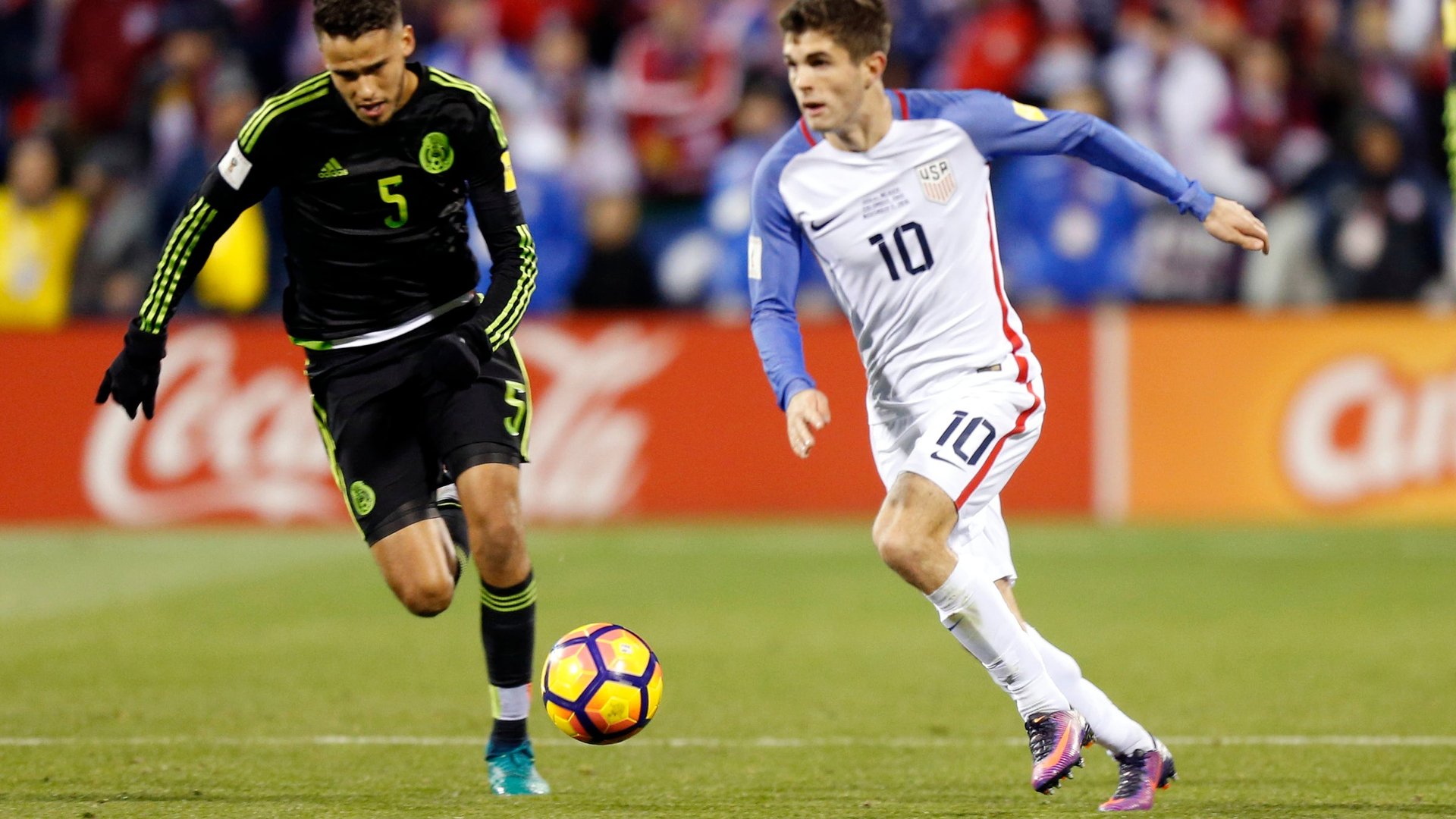Why is NAFTA bidding for a World Cup? Follow the money
The soccer federations of the United States, Mexico and Canada have announced their long-awaited tripartite bid to host soccer’s World Cup in 2026, and soccer cognoscenti know why: Cash money dollar bills.


The soccer federations of the United States, Mexico and Canada have announced their long-awaited tripartite bid to host soccer’s World Cup in 2026, and soccer cognoscenti know why: Cash money dollar bills.
This is, of course, because everything to do with FIFA, the sport’s global authority, is about money. The institution has suffered a troubling decade as corruption in the awarding of World Cups to South Africa and Qatar was revealed by US prosecutors, leading to the arrests and resignation of much of the organization’s leadership. Some had accepted bribes to influence their decision on where future cups would be held, and others took kickbacks from marketing organizations seeking to profit from the lucrative global tournament.
This time, at least so far as we know, blatant bribes are off the table. Soccer officials from these three countries haven’t been implicated in the bribery scandal, though one American who formerly headed the regional soccer federation, Chuck Blazer, faces serious corruption charges—all while working from Trump Tower, natch—and Nike has been implicated but not charged with bribery to win the sponsorship of Brazil’s national team.
But that doesn’t mean the three countries involved aren’t trying to present the most lucrative offer possible to FIFA’s new board, headed by Gianni Infantino, a Swiss official with a mandate to clean up the game. (Infantino’s name appeared on documents connected a kickback scheme surfaced by the Panama Papers leaks, but he has denied involvement.)
North America makes sense as a soccer host for more reasons than the basics, which is that the three countries have lots of stadiums and the capacity to host a world-class tournament without politically controversial spending to prepare. Mexico and Canada help balance out any resentment of the US while adding their own historical claims for the bid (Canada is the only G-8 nation never to host, and soccer-mad Mexico would be the first to host three times.)
But more important than those points is that the three countries’ soccer systems are already deeply intertwined economically, and that is what FIFA executives are likely to look to. Even Donald Trump understands: Despite his frequent Mexico bashing, he told US soccer federation president Sunil Gulati that he supported the prestige-boosting bid, just as he is likely to set aside his concerns about NAFTA when the economic costs become clear.
To wit: Mexico’s national team is marketed—read, monetized through exhibition matches, endorsements, and media rights—by Soccer United Marketing, a US firm that also does the same job for the US team. That’s why Mexico often plays exhibition matches in the US—it can sell tickets at higher prices and, thanks to migration, still count on a boisterous crowd of Mexican fans backing the team.
And SUM, as it is known, is also the marketing arm of MLS, the professional soccer league in the US and Canada, and is run by Don Garber, a member of the US soccer federation board. SUM is also the partner of two continents’ worth of national soccer teams, marketing CONCACAF, all the soccer-playing countries in North America and the Caribbean, and CONMENBOL, all the soccer-playing countries in South America.
In other words, one company is already responsible for profiting from most soccer teams in this hemisphere. We saw a dry run of this last year, when the US somewhat randomly hosted the hundredth anniversary of CONMEBOL’s soccer tournament, Copa America, marketed by SUM and with Mexico participating. With an average attendance of 46,000 spectators a match—the highest attendance at the tournament ever, per US Soccer, despite complaints that ticket prices were driving down turnout—and TV deals putting the games in 1.5 billion homes, the tournament generated millions of dollars in profit for the federations and their vendors.
These bidders have demonstrated that they know how to turn on the money spigot behind a global sports tournament, and it is unlikely another bid—such as one from the African federation—could promise similar profits. And that may be bribe enough for FIFA.